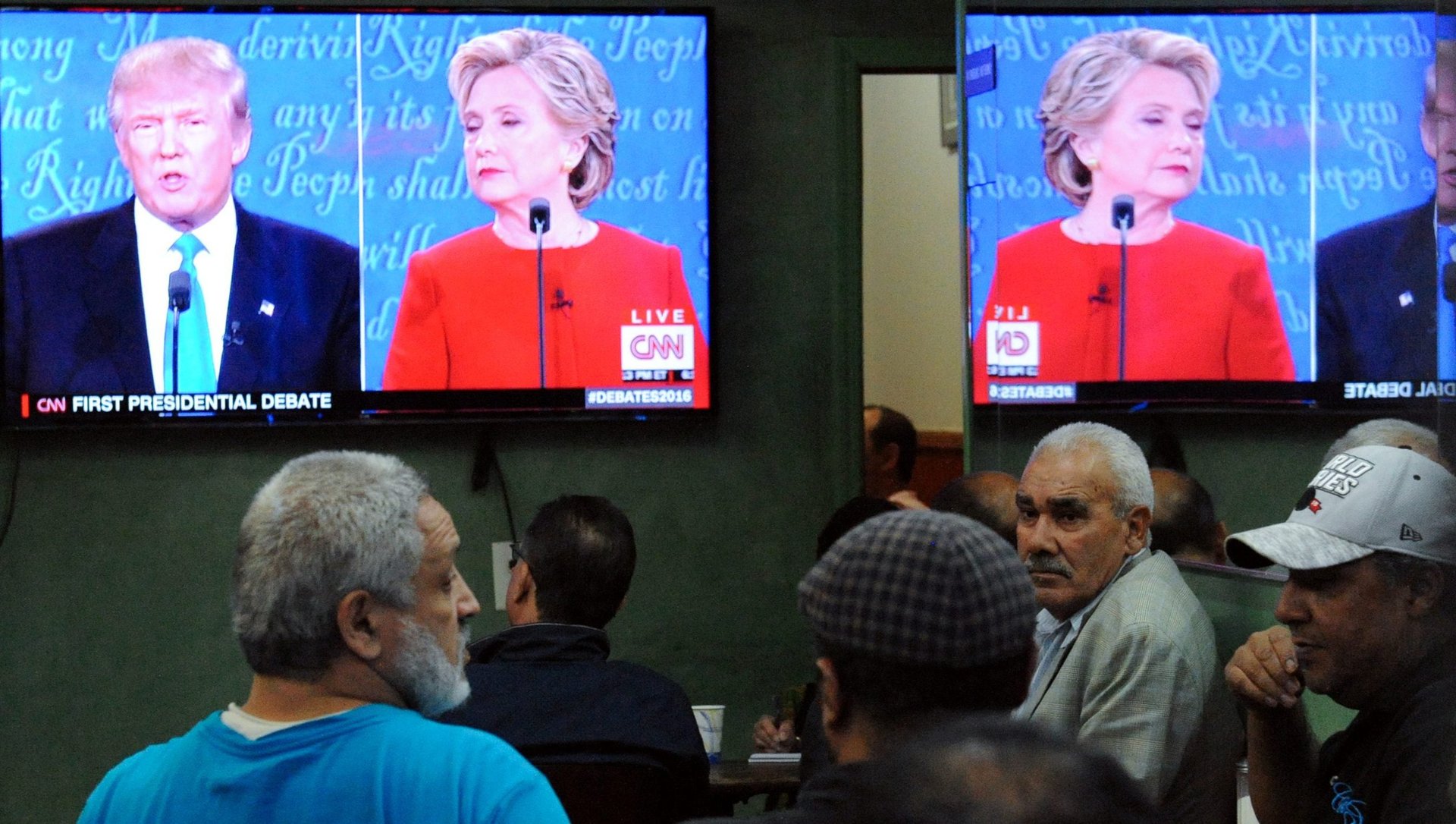On a historic night for women, Hillary Clinton reached out to working-class men
At the first US presidential debate Hillary Clinton did something she rarely does in public. She waxed nostalgic about Hugh Rodham, her middle-class father and his work printing curtains, in an attempt to reach out to working-class men, a constituency that has thrown its support behind Donald Trump.


At the first US presidential debate Hillary Clinton did something she rarely does in public. She waxed nostalgic about Hugh Rodham, her middle-class father and his work printing curtains, in an attempt to reach out to working-class men, a constituency that has thrown its support behind Donald Trump.
Early in the debate, she brought up her father to draw a distinction between her modest upbringing and Trump’s early advantages.
“Donald was very fortunate in his life, and that’s all to his benefit. He started his business with $14 million, borrowed from his father,” Clinton said. Her own father was a “small businessman,” she said, a constituency Clinton that has been trying to woo. “He worked really hard,” she recalled. “He printed drapery fabrics on long tables, where he pulled out those fabrics and he went down with a silkscreen and dumped the paint in and took the squeegee and kept going.”
Trump hit back, saying that his father gave him a “very small loan” in 1975, from which he built a company that is worth “many, many billions of dollars.” Earlier this week, an investigation by the Wall Street Journal said that while Trump often claims that he has built his empire with a $1 million loan from his father, a court document showed additional loans and gifts that Trump received in his early years. In 1985, at the time of the casino-license disclosure, Trump owed his father and his father’s businesses approximately $14 million.
Clinton referred to her father again later in the debate, as an example of the kind of small business that Trump has failed to pay while running his real estate company. “I’ve met dishwashers, painters, architects, glass installers, marble installers, drapery installers, like my dad was, who you refused to pay when they finished the work that you asked them to do,” said Clinton, adding later that she was glad that her father never did business with Trump. “He provided a good middle-class life for us, but the people he worked for, he expected the bargain to be kept on both sides.”
The focus on her father is a new tactic for Clinton. She has often used the struggles of her mother, Dorothy Rodham, who was abandoned by her own parents and worked as a housekeeper as a teenager, to highlight her middle-class roots and contrast her upbringing with that of Trump. At the Democratic National Convention in July, Clinton emphasized her own role as a mother as a qualification for the presidency.
In an event last month in Warren, Michigan, Clinton mentioned her father’s work as a small business owner. “He did the work,” said Clinton, quoted in a report by the Associated Press. “He paid for the supplies and the labor he often hired to help him on big jobs. I can’t imagine what would have happened to my father and his business if he had gotten a contract from Trump.”
While the stories reveal a new side of her life, it remains to be seen if this slice of family history will win over the working-class male voters Clinton needs.